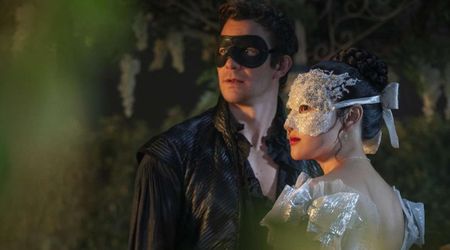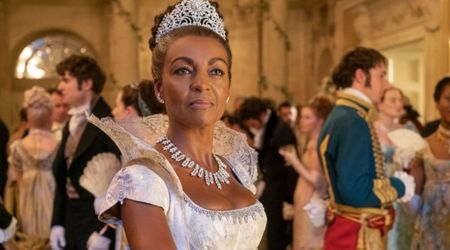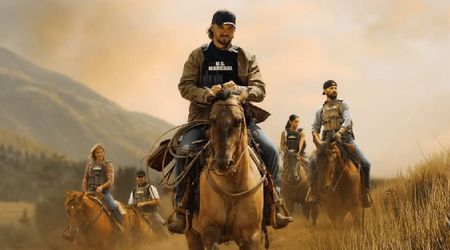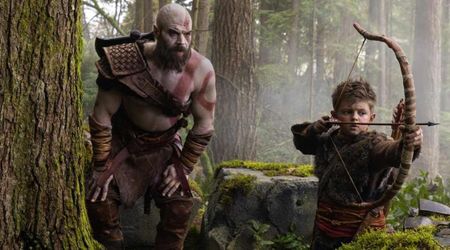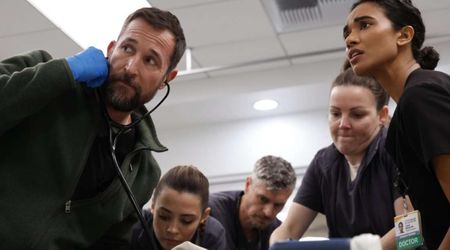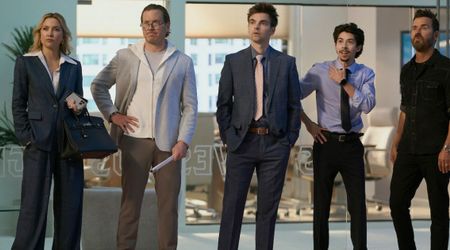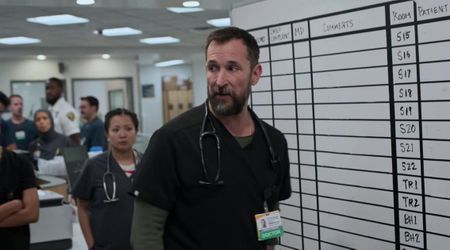Netflix's 'Sex Education' owes a big thank you to 1999 sex comedy 'American Pie'

Netflix’s teen dramedy series ‘Sex Education’, that recently released its second season has received critical acclaim -- both seasons have. And for good reason. The show depicts sensitive topics like sexuality, sexually transmitted infections, sexual orientation, cultural taboos, consent and modern relationships in a manner that is both instructive and compassionate.
But shows like ‘Sex Education’ and ‘Big Mouth’ -- another Netflix comedy that deals with growing pains and puberty -- are not the first ones to approach said topics. There have been unlikely trailblazers that have led to these revolutionary shows.
In December of 2018, Netflix Canada tweeted, “since the Ontario sex-ed curriculum has gone back in time, you can ‘learn’ about sex the way teens in the '90s did: all the ‘American Pie’ movies are now on Netflix.”
At first glance, it seems to be a load of old tosh: ‘American Pie’ was a rather raunchy comedy about a bunch of horny teenagers whose only goal in life was to have sex and more sex. But revisiting this turn-of-the-millennium “sex comedy” reveals so much more.
Yes, the movie has quite a lot of problematic behavior. It has a whole “boys will be boys” air -- mostly because of the character of Steve Stifler (Sean William Scott). The Stifmiester (as he would call himself) was, for the lack of a better word, a complete a**hole. He was rude, borderline sociopathic when it came to luring women into his bed, and a bully. The movie also featured a section where a woman changing her clothes was broadcast on the internet -- a gross violation of consent that could easily be called “revenge porn” was shrugged off like it was nothing.
But the movie also has a ton of merits. For one, it does not glorify Stifler’s behavior as any kind of ideal (even though in the years to come, he would gain cult popularity across the globe as some kind of idol for teenagers). Stifler did end up paying for his actions on several occasions in the film and its many sequels. For another, the film can be seen as a pretty decent coming-of-age film as young boys begin to navigate sex and relationships. Their goals, in the beginning, may have been one-tracked. But as the film progresses, they too mature and ultimately see sex as a kind of uncalled-for pressure more than a kind of holy grail.
Despite being a hetero‐conservative opus, the film's characters tell a sensitive tale. Jim’s (Jason Biggs) father Noah (Eugene Levy) has uncomfortable (to him) but refreshingly-open conversations about sex, masturbation and sexual safety with him. He helps him navigate through relationships. And he never shames him or treats sex like a taboo, unlike plenty of parents across the globe. In more than one way, it is the kind of dynamic Otis (Asa Butterfield) and his mother Jean (Gillian Anderson) share in ‘Sex Education’. Uncomfortable, but refreshing, and ultimately important.
There are plenty of parallels between both, whether or not intentional, one doesn’t know. Much like the town in ‘Sex Education’ where everything takes place seems oddly timeless and free of a regular amount of stigma about sex, ‘American Pie’ too is set in a fictional town, East Great Falls, where the taboo of sex is considerably less than one would expect.
Butterfield, speaking about the aesthetics of the town in ‘Sex Education’ said: “It is this kind of Nowheresville. We don't say where it is and it's got these rolling hills and these people dress a bit like they're from the '80s. It has kind of got a timeless vibe to it which I think really helped make the show stand out.”
There is a similar aesthetic vibe to ‘American Pie’ as well. Not "rolling hills" and a sense of the ‘80s, but timeless nonetheless in the form of peaceful suburbia and boundless freedom.
Aesthetic parallels, however, are nothing compared to the thematic ones. Especially in terms of the relationships between the parent and child, relationships of friends, the exploration of sex and the overall candor or conversations. It is important to understand that in a culturally conservative, pre-9/11 era, this film stood out not just because it had some gratuitous scenes involving breasts, but because it was an exploration of teenage life that was generally uncommon.
That ‘Sex Education’ is obviously a more powerful and compassionate and sensitive execution of the minefield of teenage sexuality, especially in the age of the internet and a much more growing acceptance of non-heterosexuality, cannot be overstated. But one has to broaden their view of ‘American Pie’ a little more and imagine this: What would it have looked like, had it been made in an age of more sensitivity towards genders, sexual orientations, and mental health; an age more conscious of the toxicity of masculinity that seems to plague the world today?
What would have 'American Pie' looked like, had it been created in 2020?

